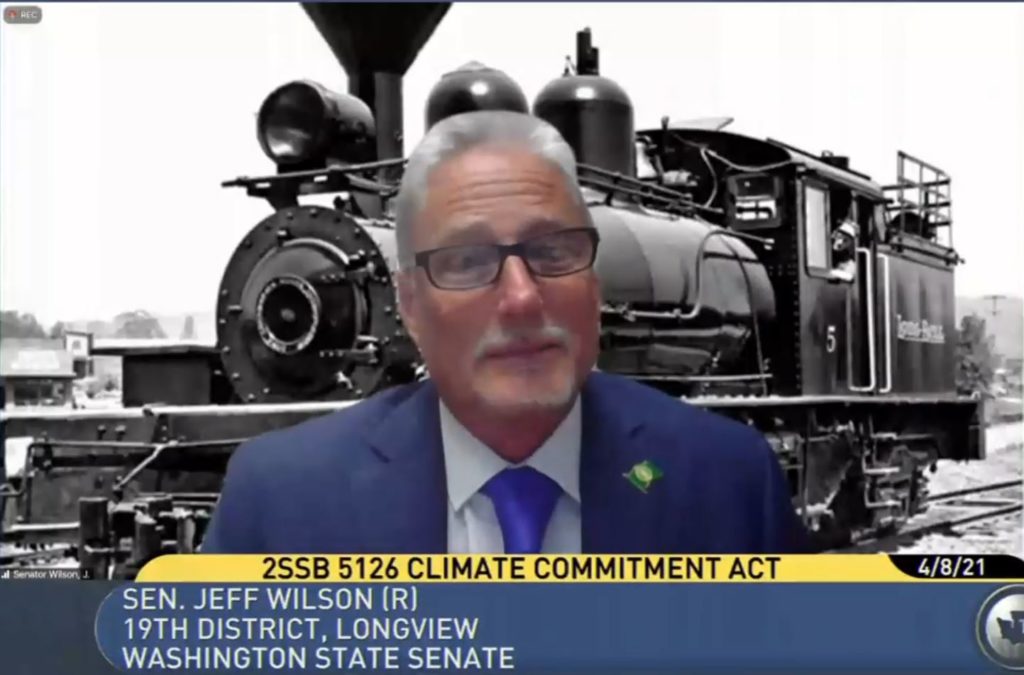More expensive fuel a top priority for legislative Democrats – measures OK’d Thursday by Senate Dems would cost 55 cents a gallon by 2028
To see floor speech, click here.
OLYMPIA – Measures passed by Senate Democrats Thursday night would force dramatic increases in fuel costs across the state and cripple economic development efforts in regions with high unemployment, says Sen. Jeff Wilson, R-Longview.
Wilson, who represents southwest Washington’s 19th Legislative District, said the Democrats’ plan to raise fuel costs will slam struggling working families in rural areas of the state, stifling new job creation while driving up the cost of transportation, food, clothing and shelter.
“This is an attack on prosperity that holds back the middle class and punishes the poor,” Wilson said.
Wilson was among Republicans who mounted a fierce 8-hour battle on the Senate floor against the two measures, but they were outnumbered. House Bill 1091, imposing a low-carbon fuel standards program, passed the Senate 27-20. Senate Bill 5126, creating a cap-and-trade program, passed 25-24. Both bills now go to the House for further consideration.
The two measures are expected to increase fuel costs by 55 cents a gallon by 2028 and about 80 cents at full implementation. The bills create complicated schemes requiring manufacturers and other businesses to purchase “credits” and “allowances” to offset carbon emissions.
The new costs would come in addition to state and federal gas taxes of 67.8 cents a gallon, already the fourth highest in the country, as well as a 9.8 cent increase in transportation-related gas taxes under consideration by this year’s Legislature.
Wilson noted that the measures would have no measurable effect on world climate, as Washington produces about two-tenths of one percent of global carbon emissions, and the two measures would reduce output only slightly. Wilson said the measures would have a disproportionate impact on districts such as his, where environmental regulations have restricted timber harvests and discouraged new industrial enterprises.
The most sensible way to deal with carbon emissions isn’t with cumbersome government programs but rather to simply plant more trees, Wilson said. He urged urban lawmakers to visit the 19th Legislative District and “hug a renewable tree, and in return, stop the pain of this legislation.”
He added, “What does a tree say when it’s talking to carbon? I’ll give you the answer, Mr. President. The tree says, ‘yummy.’”









